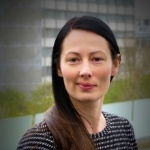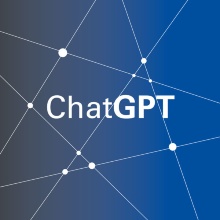With the support of IRIS and IZKT and accompanied by the Vice-Rector for Information Technology Dr. Simone Rehm, the University of Stuttgart invites to an internal discourse on the significance of chatbots in science. This will be followed by a broader information and discussion event, which will also be aimed at the city society.
ChatGPT News
May 2025
March 2025
February 2025
December 2024
June 2024
Join the discourse
If you are planning an event about ChatGPT in your department or at your institute, we would appreciate it if you would submit this information using the University Communications form. We can then bundle this information on this overview.
The University of Stuttgart has launched a forum on AI tools such as ChatGPT in ILIAS for its employees and students. The purpose of this forum is to share experiences and discuss how such tools might be used in teaching and research. Everyone is welcome to describe their own experiences of using such tools, or to discuss possible applications in teaching or research.
About opportunities and challenges of artificial intelligence in research and teaching
How should the University of Stuttgart deal with AI tools such as ChatGPT? In the interview of March 17, 2023, the Vice Rector for Teaching and Continuing Education Prof. Frank Gießelmann and Lisa Schöllhammer, coordinator of the digit@L project and a research assistant at the Institute of Social Sciences, talk about the opportunities and challenges of artificial intelligence (AI) and explain the university's plans. Recommendations for action for the use of ChatGPT in teaching, examinations, and research are scheduled for publication in the 2023 summer semester.
- Everyone is talking about the AI-based chatbot ChatGPT – it’s also a subject of interest at the University of Stuttgart, right?
Gießelmann: Yes, since the turn of the year at the latest, no one can avoid the issue. We neither want to nor can we close ourselves off to technological progress. An initial exchange of views on the use of ChatGPT in teaching took place in the meeting of the Deans of Undergraduate and Graduate Studies on February 14. Then, on February 28, the Rectorate also discussed ChatGPT. With her keynote presentation, in which she introduced the AI tool and discussed its potential and challenges [de], Ms. Schöllhammer provided a good basis for discussion in both rounds.
- What’s so special about ChatGPT – both in general and specifically for students and teachers?
Schöllhammer: Generally speaking, it is a well-trained, large statistical language model, which is very easy to use via the chat interface. In other words: ChatGPT is an intelligent conversation and feedback partner, whereby the quality of the response depends on the quality of the questions. In terms of its relation to science, the thing that makes it so special is that it generates creative bespoke text at a level that makes it very difficult, if not impossible, to distinguish AI performance from human performance. Each response is unique, and is not composed of prefabricated sentence fragments. It can also generate code, albeit at a lower qualitative level for the time being. This powerful AI tool, which is so far available for free, poses challenges but also great opportunities for teaching.
Students can use ChatGPT as a patient personal tutor, who is always on hand, to help them improve their own performance. The tool adapts to the student's level, sets practice exercises, provides feedback, and helps with problem solving. Teachers too can benefit from it: ChatGPT can act as a personal assistant that can increase one's efficiency, for example, when preparing exam and exercise questions, by suggesting ways to plan and structure events, or by composing texts for them.
Gießelmann: Research is equally affected, which is also something we discussed in the Rectorate. Examples of publications in peer-reviewed journals that were produced with the participation of ChatGPT are already known. And of course, the transitional area is the use of ChatGPT for writing doctoral theses, another issue that is certainly in need of clarification.
- What are the limitations of ChatGPT?
Schöllhammer: ChatGPT is designed to provide the most plausible, well-formulated answer to any question, but that does not mean that the answer will be true or fact-based. The user has no way of knowing how a given answer is arrived at or which sources were consulted. Some answers are just eloquent nonsense. Another thing to consider is that it is not clear what happens to the data or prompts entered, how long and where they are stored, and who may have access to them now and in the future.
- What does the University of Stuttgart need to clarify in relation to ChatGPT? How should we deal with this AI tool?
-
Gießelmann: As is the case at most other universities, the trend is that ChatGPT is set to become an important tool to work with and learn how to use properly in the future. Rather than banning it, we want to focus on the opportunities and encourage everyone to give it a try. That was the tenor in the meeting of the Deans of Undergraduate and Graduate Studies in the Rectorate. We broadly agree with the TU Munich's handout on the use of ChatGPT in teaching [de] cited in Ms. Schöllhammer's presentation.
Schöllhammer: What is in need of urgent clarification is how to deal with the use of ChatGPT in exams. It will not affect certain types of exams, such as oral examinations or traditional written examinations in which the use of aids is not permitted. However, there are other forms of exams where ChatGPT is available during the test and content is interrogated in which the AI tool can perform well.
Gießelmann: These include the preparation of content for presentations or seminar papers, writing experimental protocols in the STEM subjects, the production of text passages for bachelor's and master's theses, and even dissertations or publications. ChatGPT is immensely helpful in these cases and can save you a lot of time, and it's hard to distinguish the student's performance from the AI's input. This is where we need to come up with recommendations on how to deal with the AI tool. This was the wish expressed by the Deans of Undergraduate and Graduate Studies and in the ruling of the Rectorate.
- What are the next steps specifically?
Gießelmann: Initially, we are encouraging all teachers and students to explore ChatGPT, to see what possibilities it offers, and to gain their own experiences. We won't be able to carry out an impact assessment if we don't familiarize ourselves with it. Each department will also have to develop their own ideas on how to deal with ChatGPT in teaching and research as well as in specific exams.
Schöllhammer: Some of the Institutes are already defining how to use ChatGPT in potential use cases and would like to communicate their ideas to students and faculty members at the start of the summer semester.
Gießelmann: It is precisely these subject-specific bottom-up regulations and ideas, as well as the initial experience gained within the various departments, that we would like to make use of. The plan is to consolidate them centrally at university level soon and to present them in an initial University of Stuttgart handout on how to deal with ChatGPT in the summer semester of 2023. Although there will be subject-specific differences, there will certainly be a number of overlaps from which we, or more precisely, a group appointed by the Rectorate, will be able to derive general recommendations.
Of course, this handout will have to be reviewed and adapted again and again, as things are developing in an extremely dynamic manner. There will have to be a constant discourse within our own university as well as an ongoing exchange of ideas with other universities.
Schöllhammer: Speaking as a faculty member at the Institute for Social Sciences; were the quality of the term papers to radically improve in the summer semester, we would have to devise new assessment content and standards, and perhaps supplement the current exam with an oral component, or test for other things that ChatGPT is not capable of doing. However, given the limitations of ChatGPT discussed above, I don't think that scenario is very likely, at least not in the upcoming summer semester. We will have to accumulate experience and adapt examination regulations on a semester-by-semester basis.
- What long-term changes do you expect ChatGPT to bring about?
Schöllhammer: There is a chance that ChatGPT could increase the performance and writing level of students in the long run. I think AI tools will fundamentally change the science system. The question is, to what extent does the creation of texts still count as knowledge generation and what role does it play in scientific study? Will hitherto exceptionally good scientific writing become the standard, because everyone has an AI assistant?
Gießelmann: That's a good keyword. From a university perspective, it is important for us to ensure that everyone can access AI tools in the long run. ChatGPT is still freely accessible, but in the meantime it already offers a paid Plus variant, with which you can use a more up-to-date version with a larger database and improved performance since March 15. Therefore, we ought to start thinking about the issue of accessibility now.
Further information
- Chatbots (ChatGPT) and teaching [de]
Summary of information by Lisa Schöllhammer, University of Stuttgart - Use of ChatGPT in teaching [de]
Manual of the Technical University of Munich, ProLehre, Media and Didactics - ChatGPT in the university context [de]
Commented link collection of the Higher Education Forum on Digitization
AISA
To learn the basics about artificial intelligence behind ChatGPT, the University of Stuttgart offers courses in the "Artificial Intelligence Software Academy" (AISA) for students and doctoral candidates of all disciplines. Here, not only the basics are taught, but it goes all the way into building software systems that contain AI, as well as critically reflecting on the impact of such systems on people and society. Teachers from artificial intelligence, software engineering and various application areas have come together for this purpose. Currently, more than ten doctoral students are working with their supervisors to broaden AI skills at the University of Stuttgart. In the future, courses will also be offered outside the university.
AISA is funded by the Baden-Württemberg Ministry of Science and the Arts in the context of the Cyber Valley Initiative. Support is being provided for the expansion of the necessary technical infrastructure, the corresponding expansion of the range of courses as well as intensive research at the interface of AI, software and applications.
Teaching AI competence - Article about AISA from the magazine forschung leben
Expert interview about ChatGPT
Technical background and hallucinating language models
Chatting with ChatGPT is impressive. How does the language model work? Where do the answers come from? Prof. Jonas Kuhn from the Institute for Natural Language Processing (IMS) explains the exact processes in an interview. He tells us why there is a danger of language models starting to hallucinate, what he finds fascinating about ChatGPT and where the current limits of AI lie. He also points out that the interdisciplinary research at the University of Stuttgart helps to understand mechanisms of the further development of language and term systems even better.
Contact

Lisa Schöllhammer
Digitalization officer

Lydia Lehmann
Deputy Head of University Communications



